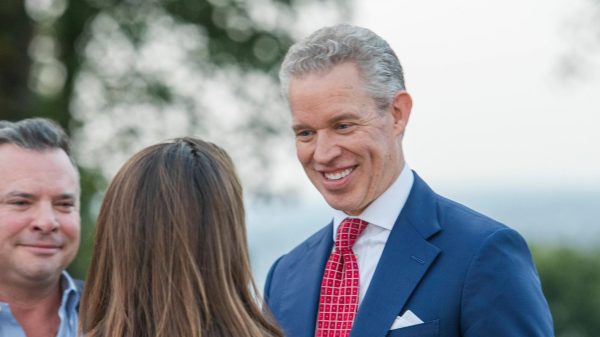By Bill Britt
Alabama Political Reporter
Before then Attorney General Luther Strange took his ill-fated appointment to the U.S. Senate, his office prepared legislation to clarify and strengthen existing ethics laws.
Amidst all the nascent posturing about a dire need to, “Reform and Clarify” current ethics laws, there seems to be a pretense that no such clarification exists and, therefore, the Legislature needs to do something.
One proposal is to establish a committee to make recommendations for ethics reforms before the 2019 Session is currently the preferred solution thereby stalling any reform measures while giving special interests groups sufficient time to work to muddy laws that hinder their businesses.
But there is already a fix available for the asking.
Some have said they didn’t want to propose legislation that was drafted by only one entity, but this in itself is misleading or at least lacks an understanding of how the attorney general’s bill was drafted.
After several months of working with various stakeholders, the legislation — as proposed by Strange’s office — was approved by Senate President Pro Tempore Del Marsh, Speaker of the House Mac McCutcheon, plus various other lawmakers, lobbyists and other interested parties.
Those who reviewed the bill and signed-off on its content included not only Marsh and McCutcheon, but, according to those within the State House at the time, the final measure was accepted by lobbyists/lawyers Greg Butrus, Ted Hosp, Sen. Arthur Orr and several others who were a part of the negotiations.
Once Strange’s bill received approval from the various players, the Republican leadership promised to present the legislation during the 2017 Legislative Session.
However, the attorney general’s bill was never introduced after Steve Marshall was appointed to replace Strange.
Marshall, ever mindful of political positioning, decided not to press ethics reform for fear of offending the wrong people. Republican House and Senate leadership used Marshall’s timidity as an opportunity to do nothing.
Today’s movement to reform and clarify appears to be an effort to weaken the ethics code. Meanwhile, the bill agreed to by Republican leadership in 2016 to clarify and strengthen ethics laws is mostly lost to willful ignorance.
Strange’s bill was widely seen as a response to a call by House Ethics Committee Chair Rep. Mike Ball, a Republican, to form a committee to rewrite the ethics code. Ball, still an unrepentant supporter of disgraced Speaker Mike Hubbard, has repeatedly accused prosecutors in the Hubbard case of criminal misconduct. Only in the world of Montgomery crony politics could a man, who to this day defends Hubbard, be allowed to remain chair of the House Ethics Committee.
In the wake of Hubbard’s conviction on 12 felony counts of public corruption, the ethics laws, as passed by the Republican supermajority in 2010, were under attack by his supporters, especially those un-indicted co-conspirators who were forced to testify at his corruption trial. Many of those same individuals are supporting Marshall’s run for office.
On a political stage where alternative reasoning is often a cover for the actual motivation, recent claims would have the public and uninformed lawmakers believe that a significant reason for ethics reform is because Republicans are having trouble recruiting candidates because the current ethics statutes are too harsh or unclear.
The latest reason given for an ethics committee to rewrite state ethics statues is that “good candidates” are not running for office because of unclear ethics laws. It is also the reason given for many current lawmakers leaving office.
Among the movers behind the so-called “reform and clarify” are those who would dismantle a provision of the law that prohibits principals, subordinates and lobbyists from purchasing legislators as they did in Hubbard’s case.
It is also being pushed so that public officials can trade on their elected position. Recently proposed legislation shows that far too many public officials want to use their office to enrich themselves while hiding their activities under the heading of economic development or secret Ethics Commission opinions.
It remains abundantly evident that the larger issue is not that the rules are ambiguous or unfair but unwelcome by those who, like Hubbard, feel the laws are restrictive to their business interests.
Several lawmakers have said that it’s no longer fun to sit in the Legislature because they can’t enjoy the benefits of lobbyist-paid dinners or other perks that were business-as-usual in the old days.
There is a fix; there is legislation that had broad support — albeit some begrudgingly — before Luther Strange grabbed for the golden ring.
Public service is not a frat party or a reason to expect lavish living on lobbyist and corporate expense accounts.
The facts are clear: there exists a bill that addresses all the questions raised by Hubbard’s conviction.
The problem now is who is honest and strong enough to bring back the bill that was agreed upon before the 2017 Session?




















































